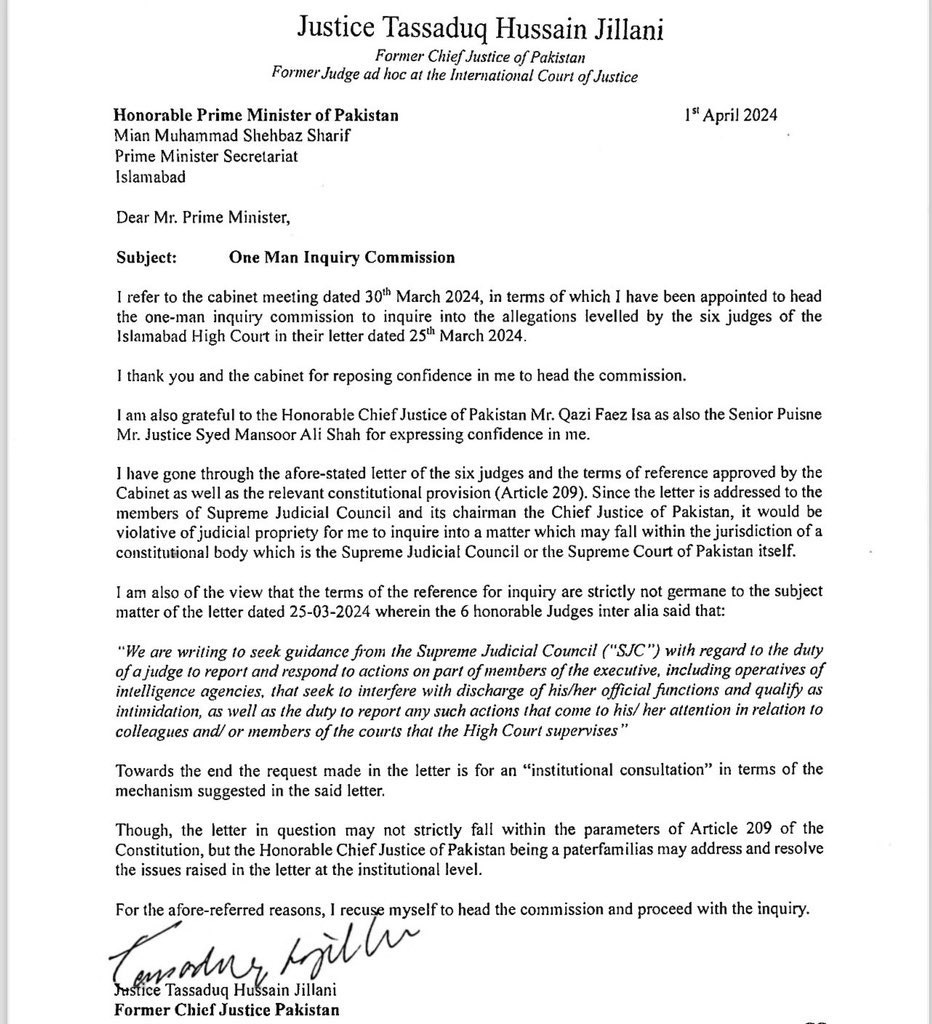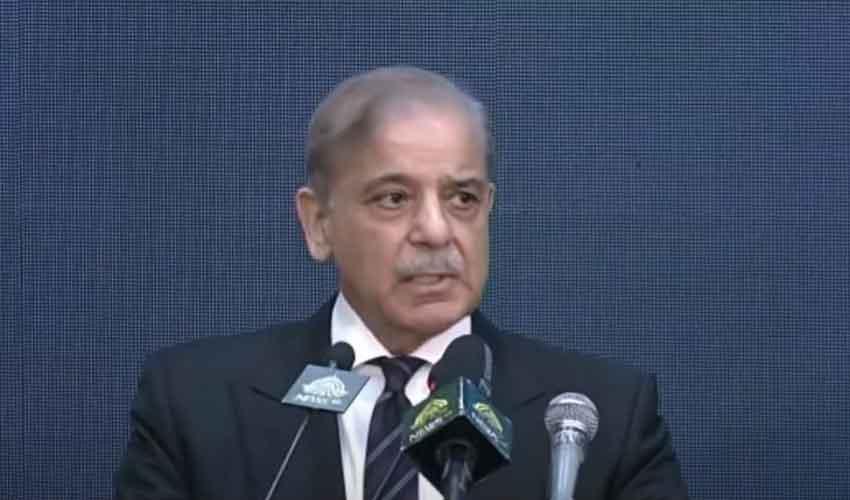Former chief justice of Pakistan (CJP) Tassaduq Hussain Jilani has excused himself from heading the government-approved inquiry commission on the letter written by six judges of the Islamabad High Court.
The former CJP wrote a letter to Prime Minister Shehbaz Sharif in which he observed that the high court judges had written the letter to the Supreme Judicial Council (SJC), which itself was a constitutional body.

Furthermore, Jilani also voiced his disagreement with the Terms of Reference (TORs) of the commission, deeming them irrelevant to the case at hand. He emphasized the importance of institutional consultation in addressing such matters effectively.
Also Read: Federal cabinet approves inquiry commission to investigate IHC judges' letter
"Towards the end the request made in the letter is for an 'institutional consultation' in terms of the mechanism suggested in the said letter," the former top judge explained.
On Saturday, the government had approved the constitution of an inquiry commission to investigate the letter of six judges from the Islamabad High Court regarding interference on the part of intelligence agencies in judicial decisions. Former chief justice of Pakistan, Tassaduq Hussain Jilani, was nominated as the head of the inquiry commission.
The cabinet meeting denied the allegations of the IHC judges of the executive's interference. The cabinet members were of the unanimous opinion that they strongly believed in the principle of decentralization of powers in state institutions.
The federal cabinet also approved the TORs of the commission of inquiry. As per the terms of reference of the commission, if necessary, the head of the commission can seek the services of anyone. The commission will be given a timeframe of 60 days to prepare its report.
Also Read: SC takes suo motu notice of IHC judges' letter, to take up case on Wednesday
The commission will thoroughly investigate the allegations levelled in the judges' letter and determine whether an official was directly involved in the alleged interference. "The commission will also have the power to examine any other matter if it deems necessary during the course of the inquiry," the cabinet agreed.
The commission shall recommend action against any agency, department, or government body based on facts.



























